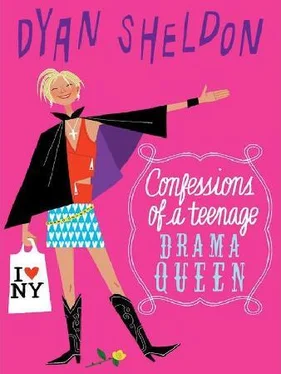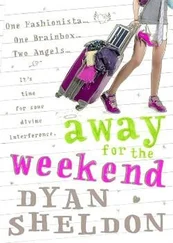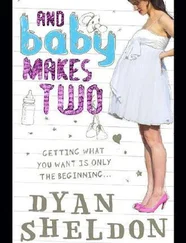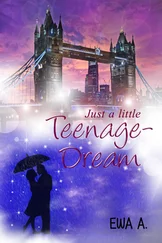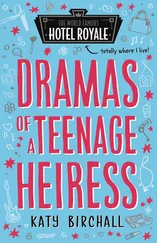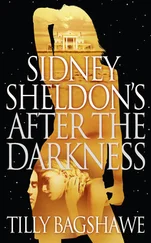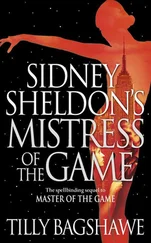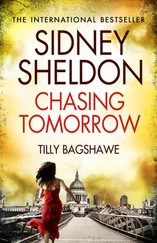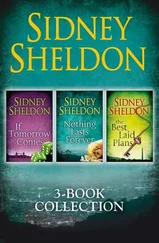I smiled back. “I know.”
Carla’s smile became a little less bright but no less toothy. The salesman was about to tell me a price I didn’t want to hear. “I know you’re new here, Lola,” purred Carla Santini, “and you don’t understand how things work yet.” Her smile solidified. “I’ve been making allowances for that.”
My own smile dimmed slightly. Even though I hadn’t heard it yet, I could tell I wasn’t going to like the price.
“So are you going to tell me how things work?” I purred back.
Carla Santini said, “Yes,” and stopped smiling. Then she told me. I was sitting in her seat in English. I was attracting too much attention. I was committing social suicide by hanging out with Ella-Never-Had-a-Fella.
“I thought you and Ella were friends.” I still had a smile on my face.
“Of course we’re friends.” She held up her hand, the first and second fingers crossed. “We were like that when we were little. But she doesn’t have your potential, does she?” She openly turned and flicked her head to where Ella was sitting with her lunch in front of her, waiting for me. “I mean, look at her. She dresses like a politician’s wife. I know she’s very sweet, but, let’s face it, she’s about as exciting as lettuce.” The curls shuddered and she looked back to me. “But you … you’re different. You could really be somebody at Dellwood.”
I could hear her adding silently, If I let you… That’s how Carla Santini works: you don’t do anything or get anything unless she says so. It’s like dealing with the Godfather.
“Wow…” I said. “Then I could die happy.”
If it could be bottled, the Santini smile could be used as a chemical weapon.
“It’s a lot better than dying unhappy ,” cooed Carla.
I picked up my tray.
“Thanks for the advice,” I said. “Now, if you’ll excuse me…” I nodded to where Ella was staring at us, her mouth open and a forkful of food hovering in the air beside it, like a politician’s wife whose lunch has been disturbed by the arrival of Martians. “My friend is waiting for me.”
Those were the first shots fired in what turned out to be a pretty ugly war.
I Try To Live With Disaster
My mother was still sitting at the table, reading the newspaper, when I finally staggered into the kitchen the morning after the end of the world, but the twins had already left for school. Thank the gods for their small mercies. I could face my mother – she, at least, usually tries to act like an adult – but I couldn’t have faced her other progeny on that black, black morn. To have to sit with them while they shrieked at each other, babbled about nothing, and spat half-chewed cereal everywhere while my heart was being devoured by the worms of death would have killed me on the spot.
My mother gave me a glance when I came in.
“I called you twice,” she said, her eyes already back on the article she was reading. “What happened? Did you fall asleep again?”
I took a dragon mug from the shelf, but I was almost too weak to lift it. I leaned against the counter for support.
“I wasn’t sleeping,” I said in a voice that had lost all trace of joy. Probably forever. “I had a very fraught night.” Which was a phenomenal understatement.
My parent responded to this shocking announcement with her usual lack of concern for anyone else, especially me. “I had a very difficult night, too. Someone was playing one of her audio-migraines for hours.”
My mother doesn’t call what Sidartha plays “music”. My mother calls improvisational jazz “music”. Sidartha’s music she calls “audio-migraine”.
I poured some coffee into the mug. Very slowly, watching it flow into the cup like blood. “I’m sorry if my music disturbed you.” I sighed again. “But I’m afraid it’s the only comfort I have right now.”
“Well comfort yourself a little more quietly next time,” said my mother.
I picked up my mug and collapsed in the chair across from her.
She finally looked up and noticed that I was all in black, including my lips and eyelids. “So what’s it today? You in an Addams Family mood, or have you and Ella had a fight?”
I stared into the blackness that filled my cup. “It’s nothing,” I whispered, the words strained with pain. “You wouldn’t understand.”
“That’s not all you’re having for breakfast, is it?” demanded my mother. “You can’t go to school on a cup of coffee.”
I looked at her as a ghost might look at an old friend who is still alive. “I can’t eat anything,” I informed her patiently. “It would turn to ashes as it touched my lips.”
My mother made a face of exaggerated concentration. “Bette Davis?” she guessed. “Joan Crawford?” She shook her head. “It can’t be Glenn Close.”
“This isn’t an act,” I said hollowly. “This happens to be a day of great unhappiness for me.”
“You’ll be a lot more than unhappy if you don’t at least eat a piece of fruit.” She raised her paper. “And you’ll wash all that junk off your face before you leave this house, as well. You look like the living dead.”
My mother’s a potter. Potters aren’t like painters or musicians or actors; they’re much more pedestrian. It was unusual for her to be so perceptive. This unexpected sensitivity on her part surprised me so much that, even though I must have cried about ten million tears since I heard about the break-up, fresh ones flooded my eyes.
“That’s exactly what I am,” I sobbed. “I’m the living dead.”
“Pretend you’re the walking wounded instead,” said my mother. “And get yourself something to eat.”
* * *
“I wonder what really made them break up,” Ella was musing as we neared the sprawl of gleaming modern buildings that is Dellwood High. “I mean, ‘solo careers’ doesn’t really tell you much, does it? It’s what they always say. It’s like when politicians start talking about freedom and liberty; it could mean anything.”
“Artistic differences,” I decided. “I’m sure I read somewhere that Stu feels stifled by the rest of the group.” Stu Wolff was the lead singer and song-writer of Sidartha and, in my humble opinion, one of the greatest geniuses who has ever lived. Maybe even greater than the Bard himself.
“I bet Stu’s hard to get along with,” said Ella. “You can sort of tell that he’s moody.”
“Haunted,” I corrected her. “All true geniuses are haunted. It’s part of what they have to suffer for their art.”
“I’m happy I’m so normal,” said Ella. “I don’t think I could stand the stress of being artistically gifted.” She readjusted her book bag on her shoulder and stifled a smile. “Or the pain.”
“It isn’t easy,” I assured her. “It’s a great deal to—”
I stopped, paralyzed by the shocking sight in front of my eyes.
“Ye gods!” I wailed. “We really do live in a cultural wasteland. Look at this place, will you? Just look at it!” If my heart weren’t already as dead and dry as a bone in the desert, this would have destroyed it for sure.
Ella looked at the rambling brick edifices spread out before us.
“It looks the same as always to me,” said Ella.
Ella’s the very best friend I’ve ever had, but if I were being totally honest I’d have to admit that she doesn’t always have much imagination. She’s intelligent, but not really creative. It comes from growing up with a woman who arranges the spices and canned goods in alphabetical order and has the sheets ironed. That’s why she’s lucky to have me around. I open her horizons. And I benefit from Ella’s down-to-earthness, of course. Extremely sensitive and imaginative people need someone steady to balance them.
Читать дальше
